Research, editing : Gan Yung Chyan, KUCINTA SETIA
News on Japan, CCP, Cambodia, Taiwan, Hong Kong, Norway
News (1) to (4) / Editor : Lin Yuhua / https://ec.ltn.com.tw/article/breakingnews/4723110
News (1)
Be careful when visiting Japan! The new Japanese yen banknotes will officially go on the road on 3 July 2024. Here are some things to note
Image : Japan will officially issue a new version of yen banknotes on Wednesday (3 July 2024), with three denominations: 10,000 yen, 5,000 yen and 1,000 yen. (AFP)
Be careful when traveling to Japan during the summer vacation! Japan will officially issue a new version of yen banknotes on Wednesday (3 July 2024), with three denominations of 10,000 yen, 5,000 yen and 1,000 yen. This will be the first time in 20 years since 2004 that Japan has updated the banknote design, "The Japan Times" compiled information related to the new version of yen banknotes, pointing out that although the new version of yen banknotes were officially issued on Wednesday, due to different conditions at different financial institutions, it may not be possible to get them all on the same day.
News (2)
The new features of the new Yen bank notes
The new yen banknotes have many new security features, including some world-first technology, to prevent counterfeiting. In addition to the common gravure printing and watermarks on banknotes, the redesigned 10,000 yen and 5,000 yen bills use 3D holographic projection technology, which looks different from every angle. The lower left corner of the 1,000 yen bill also has a similar design.
In addition, the numbers on the new yen banknotes are enlarged in the center with Arabic numerals in the center and smaller in Japanese characters, making it easier to identify the denomination.
Crime involving counterfeit money has been declining in Japan in recent years, in part due to the spread of cashless payments. In 2020, the Japanese police received 2,693 reports involving counterfeit banknotes, but in 2023 there were only 681 cases.
Image : The new yen banknotes use 3D holographic projection technology, which makes them look different from every angle. (Reuters)
News (3)
When and where to get the new yen banknotes
Although the new yen banknotes will be officially issued on Wednesday, it may not be possible to get them all on the same day because the Bank of Japan will first provide the new yen banknotes to financial institutions. Once these institutions are ready, they will start using them. As for the new yen banknotes, banknotes will be provided to users through ATMs or counters, which means that the situation may differ between different financial institutions.
As of the end of March this year, the Bank of Japan has printed 4.53 billion new yen banknotes, and it is expected to reach 5 billion as of Wednesday. The Bank of Japan and the Ministry of Finance of Japan stated that after the new version of yen banknotes is circulated, the old version of yen banknotes can still be used.
A survey by the Japanese Ministry of Finance shows that about 80% to 90% of banks, stations, supermarkets and supermarkets will complete the machine update by Wednesday. These machines will be able to use the new version of yen banknotes, but vending machines on the road or restaurants Ticket machines are expected to take longer to be fully updated.
Image : As of the end of March this year, the Bank of Japan had printed 4.53 billion new yen notes. (Bloomberg)
News (4)
The new characters on the banknotes are known
The figure on the 10,000 yen note is Shibusawa Eiichi, the "father of Japanese capitalism" who founded the first modern bank; the figure on the 5,000 yen note is Tsuda Umeko, a pioneer who was the first to study abroad and establish a higher education institution for women; The person on the 1,000 yen is Kitasato Shibasaburo, the father of Japanese bacteriology and modern medicine.
Image : The new version of the yen banknote has updated figures on the front and scenery on the back. (Picture taken from Japan-Taiwan Exchange Association Facebook)
News (5)
The sweetest ever! The Japanese yen was shocked to see "0.2050". Exchange it for NT$100,000 and eat 36 more bowls of ramen than at the beginning of the year
Editor : Gao Jiajing / https://ec.ltn.com.tw/article/breakingnews/4723177?utm_campaign=MOREPAGE&utm_source=BUSINESS&utm_medium=1 / Image : The Bank of Taiwan's selling price of yen banknotes today (2 July 2024) was shocked to see the sweetest price of "0.2050" in early trading, setting a new low in 34 years. If converted to 0.2217 at the beginning of the year, NT$100,000 can be exchanged for more than 36,000 yen and 36 more bowls of ramen. (Bloomberg)
On 2 July 2024, the yen broke through the bottom again, once reaching a 38-year low of 161.727 against the U.S. Dollar. As the yen continued to depreciate, the exchange rate of the yen against the New Taiwan Dollar also hit a new low. The Bank of Taiwan’s selling price of yen banknotes was shocked to see the sweetest price of "0.2050" in early trading, setting a new low. If converted to 0.2217 at the beginning of the year, NT$100,000 can be exchanged for more than 36,000 yen and 36 more bowls of ramen.
The Bank of Taiwan's yen banknotes opened at 0.2053 yuan per yen on Tuesday, and then saw the sweetest price of "0.2050" at around 9:56 a.m., setting a new low.
Compared with the closing price of Bank of Taiwan's Japanese yen cash sales on January 2 this year, which was NT$0.2217, if exchanged for NT$100,000, it could only be exchanged for NT$451,059 at that time, but the sweetest price on Monday morning was available to 487,804 yen, and now earns 36,745 yen.
The price of most Japanese ramen is between 800 yen and 1,200 yen. If a bowl of ramen costs 1,000 yen, you can eat 36 more bowls of ramen compared to the exchange rate at the beginning of the year.
News (6) to (9) / Reporter : Ji Yuan / Editor : Lin Yan / https://www.epochtimes.com/b5/24/7/2/n14281787.htm
News (6)
Why does it feel like people all over the world travel to Japan?
Image : The picture shows the crowds of people in Omotesando shopping street in Tokyo on 17 March 2024. (Yuichi Yamazaki/AFP)
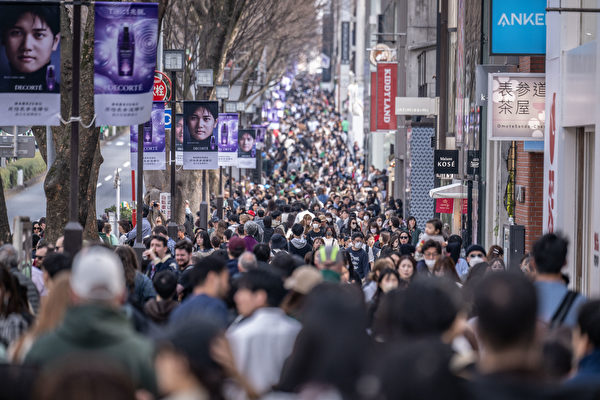
On 1 July 2024, the price of the yen fell to 160 yen per U.S. dollar, which was a new low in 38 years. Such a cheap Japanese yen attracts tourists from all over the world to go to Japan and make large purchases.
Bloomberg reported that according to the latest data from the Japan National Tourism Organization, more than 14.5 million people have arrived in Japan as of May this year, a 70% increase from the same period last year, and are expected to exceed the record 31 million tourists in 2019 and set a new record.
Traditionally, Japan's attractions for tourists have been its dining, cleanliness and traditional cultural experiences. However, Japan now feels more like a low-cost shopping paradise, where travelers can indulge in off-menu dishes or premium A5 Wagyu steaks at the best value.
News (7)
Surge in tourist numbers continues
This year, from March to May, Japan received more than 3 million tourists for three consecutive months, most of them from South Korea, China and Taiwan. In the first five months of this year, more than 1 million Americans traveled across the ocean to Japan, a 50% increase from the same period in 2019. In May, visitors from the Group of Seven (G7) industrialized countries also broke records.
Chinese tourists have lagged behind other countries since the beginning of the year, but the gap is closing. It turns out that Japan is the first choice for Chinese tourists this summer.
Japan will receive a record 34 million tourists this year, reaching the government's short-term target a year ahead of schedule, according to analysis by Bloomberg Intelligence. Japanese Prime Minister Fumio Kishida's long-term goal is to receive 60 million inbound tourists per year by 2030.
In contrast, reduced overseas purchasing power has discouraged Japanese tourists from traveling abroad, and the number of Japanese going abroad is still only about 60% of the pre-epidemic peak.
Image : The picture shows Sensoji Temple in Tokyo. (Li Xiaotong/The Epoch Times)
News (8)
Tourist spending surges
The increase in the number of tourists means that their spending on travel is also increasing. The weakening yen, which has fallen to its lowest level since 1986, has people opening their wallets and snapping up hotel rooms, luxury goods and theme park tickets.
In the first quarter of this year, tourist spending reached a record 1.75 trillion yen; as the number of Chinese tourists increases, this number is likely to surge. According to the Japan Tourism Agency, Chinese tourists spend twice as much as ordinary tourists. (Previous report: Japan and China are on the U.S. currency manipulator watch list for different reasons)
News (9)
Hotel prices are getting cheaper while flight requirements surge
Hotel prices in Japan are rising but are still cheaper than in other countries.
A weak yen and an attractive cherry blossom season have pushed hotel prices in Japan to a 30-year high since March, with the average daily room rate at about 20,986 yen ($136), the highest level since 1997.
Hotel rates in Tokyo are higher, averaging $177. However, hotel rooms in Japan are still quite cheap compared to places like New York; the average nightly rate in New York is over $300.
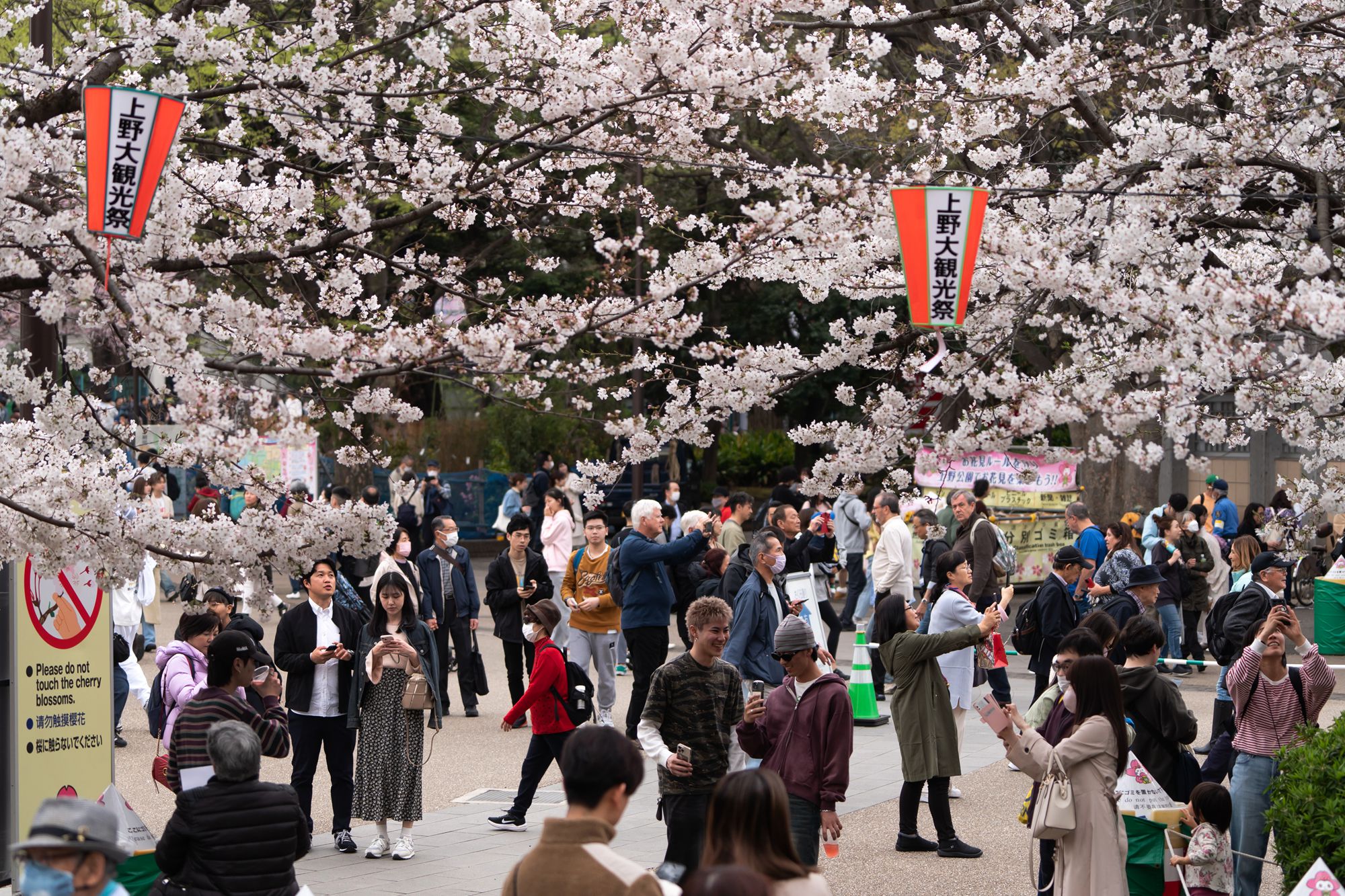
Image : On 4 April 2024, people watched the blooming cherry blossoms in Tokyo, Japan. (Tomohiro Ohsumi/Getty Images)
The explosive increase in tourists also means an increase in the need for air flights. According to a report by Bloomberg New Energy Finance (BNEF), there will be approximately 37 million flights worldwide this year. By the end of this year, 1 million of these flights will land in Japan. This is not all good news for Japan. The spiraling number of tourists has put great pressure on both transportation and infrastructure.
If you're planning a trip to Japan these days, you won't be alone. Now, tourists all over the world are just like you and want to shop in Japan.
News (10)
China’s expansion of naval base in Cambodia triggers international concern
Reporter : Wu Xianglian / Editor : Li Lin / https://www.epochtimes.com/b5/24/7/1/n14281685.htm / Image : The picture shows a Cambodian navy ship moored at the pier of Ream Naval Base on 26 July 2019. (Tang Chhin Sothy/AFP via Getty Images)

Since December last year, two Chinese Communist Navy frigates have docked at the Ream (Ream, also translated as Yunlang) naval base in Cambodia. According to reports, the base is a permanent military stronghold established by the Chinese Communist Army on this waterway in the Gulf of Thailand.
The Wall Street Journal (WSJ) reported on Monday (1 July 2024) that the two Chinese frigates are still docked at Ream for more than half a year, proving that the Chinese military has established a permanent stronghold there, and that this waterway will play a key role in conflicts in Taiwan or the South China Sea.
Washington has kept a close eye on the base in recent years. In 2019, WSJ reported that the Chinese Communist Party and the Cambodian government signed a secret agreement allowing Beijing to establish a naval ship base in Ream.
According to the U.S. Embassy in Cambodia, U.S. Secretary of Defense Lloyd Austin visited Phnom Penh, the capital of Cambodia, in early June this year and proposed resuming military relations with Cambodia. In 2022, U.S. President Biden visited Cambodia during a regional summit and expressed concern about the CCP’s use of the base.
Although the CCP’s global military footprint pales in comparison to that of the United States, the warships docked at Ream demonstrate the growing capabilities and ambitions of the Chinese Communist military.
There is a US$2 billion expressway funded by CCP China between Ream and Phnom Penh, the capital of Cambodia, which was opened to traffic in 2022. Currently, cranes can be seen everywhere on the large construction sites of Ream.
Cambodia gave different explanations for the presence of the Chinese Communist ships. First, it said they were here to help with training, and later it was said that they were also here to help prepare for the military exercises between the two countries in May but after the exercise, according to satellite images provided by the US space technology company Maxar Technologies, the two frigates were still docked there.
When asked about the warship and base expansion, the Chinese Communist government said it was built at Cambodia's request. The Ministry of Foreign Affairs of the Communist Party of China stated: "China supports Cambodia in advancing the Ream Naval Base upgrade project, which will help improve Cambodia's ability to safeguard national independence and sovereignty."
Two years ago, Tea Banh, then Cambodian Defense Minister, took a swim in the Gulf of Thailand with Wang Wentian, the Chinese Communist ambassador to Phnom Penh, and then held a ribbon-cutting ceremony for a large-scale upgrade of the Ream base. The renovation of the base, funded by China, includes the construction of two new wharves, warehouses, ship repair yards and berthing facilities.
According to a report by the Center for Strategic and International Studies (CSIS), an American think tank, satellite images over the past two years have shown the emergence of a new pier, dry dock, administrative buildings and what appear to be living quarters, complete with basketballs. field. Two buildings there that were funded by the United States were demolished. In 2021, the Pentagon said it was willing to pay for the upgrade of one of the buildings, but it was demolished before construction could begin.
In mid-May, more than 2,000 Cambodian and Chinese soldiers participated in a large-scale military exercise called "Golden Dragon." The two-week exercise includes a display of China's latest rifles and drones, as well as counter-terrorism and anti-piracy exercises.
Cambodia stated that the CCP does not enjoy the exclusive right to use Ream Port, but since the upgrade of Ream, no other foreign warships have visited the port.
Thomas Shugart, an adjunct senior fellow at the Center for a New American Security, said Ream appears to be very similar to the Chinese Communist military base in Djibouti, located in the Horn of Africa. The strategic location is important.
"This new base is a platform for potential military action in an emergency in Taiwan," said Craig Singleton, senior China researcher at the Foundation for Defense of Democracies, a Washington think tank. The goal of China (the CCP) is to prevent the U.S. military from safely passing through the Strait of Malacca into China’s surrounding areas. In fact, it is to prevent the U.S. military from participating in the battle.”
News (11)
Expert: Four years after the implementation of the National Security Law, Hong Kong has been fully "Sinicized"
Reporter : Zhong Yuan / Editor : Ye Ziwei / https://www.epochtimes.com/b5/24/7/2/n14281819.htm / Image : On 1 July 2024, the Dragon Culture and Education Foundation, a Taiwanese legal person, held a symposium on the "Observation of the Situation on the 4th Anniversary of the "Hong Kong Version of the National Security Law" and the 27th Anniversary of the Handover of Hong Kong", inviting scholars and experts who study Hong Kong issues to hold symposiums and in-depth discussions. (Provided by Dragon Culture and Education Foundation)
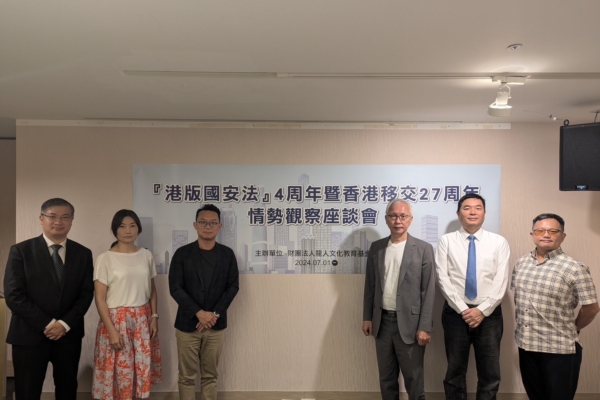
Four years after the implementation of the "Hong Kong version of the National Security Law", the Dragon Culture and Education Foundation held a symposium and invited scholars and experts who studied Hong Kong issues to hold a symposium. Study in depth. Experts point out that the former Pearl of the Orient is no longer there. Four years after the "Hong Kong National Security Law" was implemented, Hong Kong has been fully "Sinicized".
The Dragon Culture and Education Foundation, a Taiwanese consortium, said that on 1 July 2024, the "Hong Kong version of the National Security Law" will have passed four years. During this period, it will have a huge impact on the development of Hong Kong and relations with Taiwan and Hong Kong. The Hong Kong government went further on 23 March this year. The implementation of the "Maintenance of National Security Ordinance" formulated in accordance with Article 23 of Hong Kong's Basic Law completely stifles Hong Kong's only freedoms and human rights. The foundation holds symposiums to help all walks of life better understand the current changes in the situation in Hong Kong.
Professor Chen Yujie, an assistant researcher at the Institute of Law of Academia Sinica, pointed out from a legal perspective that less than four years after the passage of the "Hong Kong version of the National Security Law" in 2020, Hong Kong also passed the "Maintenance of National Security Ordinance". These two laws set a new standard for Hong Kong. The establishment of a national security legal system similar to that of the Chinese Communist Party has brought unprecedented impacts and challenges to Hong Kong’s human rights and rule of law.
Chen Yujie said that in the future, Hong Kong people’s comments on social media will be a national security risk and will become a literal prison. Therefore, she believes that on the 27th anniversary of the handover of Hong Kong, Hong Kong has been fully "nationalized" by China and there is no room for "one country, two systems".
Lawyer Sang Pu, chairman of the Taiwan-Hong Kong Association from Hong Kong, pointed out with emotion that Hong Kong's politics, judiciary, human rights, freedom, and justice will inevitably deteriorate further in the future. Important indicators that need to be observed include people flow control (entry and exit), capital control (free exchange of foreign currencies, decoupling of the Hong Kong dollar, bank deposit and loan restrictions, foreign exchange deposits), information flow control (network closures and the Great Internet Wall), and round-the-clock monitoring by digital totalitarianism. The extent of implementation of the social credit system and so on.
Lawyer Samp also pointed out that the recent upgrade to orange travel warning for Taiwanese traveling to China, Hong Kong and Macao is correct and shows the Taiwan government’s objective assessment of the “22 Articles of Taiwan Independence” launched by the Chinese Communist Party and the severe situation in Hong Kong.
Professor Dong Liwen, an advisory committee member of a Taiwan think tank, emphasized that the CCP’s legislative process for Hong Kong violated the principles of the rule of law such as non-retroactivity, the principle of proportionality, and trust protection. It can no longer be called a law, but is more like a purge of Hong Kong’s political, economic, and social culture. Transformation.
Dong Liwen also reminded that this time's "22 Articles for Taiwan Independence" are actually the Chinese Communist Party copying Hong Kong's experience to control Taiwan and gradually purge and reform Taiwan's economy, society and culture. "Chinese people must clearly understand the dangers the CCP poses to our country's sovereignty - as long as they do not support reunification, not only Taiwan independence, but also support for the sovereignty of the Republic of China, are included in the scope of punishment under the 'Taiwan Independence Article 22.'"
Xiao Duquan, an adjunct assistant professor at the Department of Political Science at the Chinese Culture University, pointed out that since the implementation of the Hong Kong National Security Law in 2020, Hong Kong's status as an international financial center has been greatly affected, especially as Hong Kong has experienced a serious outflow of its middle-class population in recent years. The government is actively promoting the "High-end Talent Pass Program" to supplement the lost population. Although a total of 180,000 people have gone to Hong Kong, more than 90% of them have Chinese backgrounds. The "event economy" promoted by the Hong Kong government after the epidemic is not as expected, and the Oriental Pearl Tower is losing its former glory.
Professor Hong Yaonan, deputy director of the Institute of Mainland China Studies at Tamkang University, further analyzed that Hong Kong, the past "Pearl of the Orient", has lost its former glory for three main reasons: First, it is the political factors of the implementation of the "Hong Kong version of the National Security Law." Second, it is overly dependent on the CCP and has fallen into economic structural difficulties with the CCP. Third, the global factors of intensified competition between the United States and China have put pressure on Hong Kong and Asian countries to choose sides.
Hong Yaonan believes that after Hong Kong passed the "Maintenance of National Security Ordinance" in legislation this year, it will no longer be possible to return to the free, diverse and prosperous Hong Kong it once was.
Professor Wang Zhisheng of the Asia-Pacific Elite Exchange Association said that from the past "Hong Kong version of the National Security Law" to the current "Maintenance of National Security Ordinance", Hong Kong is no longer "Hong Kong of the world", but only "Hong Kong of China" ”. "July 1" is no longer the starting point for Hong Kong's implementation of "one country, two systems", but the end point for the end of Hong Kong people's autonomy with "two national security laws".
Wang Chisheng said that the Hong Kong government will next sentence the "Hong Kong pro-democracy primary election case" led by Professor Tai Yaoting. He also once again appealed to the public that even though Hong Kong has become "China's Hong Kong," Taiwanese society should still stand up and cheer for the Hong Kong people's pursuit of democracy and freedom, and let Beijing see the people of Taiwan and Hong Kong's common insistence on universal values.
News (12)
Norway blocks CCP China from buying key Arctic territory
Reporters : Li Mei and Zhang Xiaoyu / https://www.ntdtv.com/b5/2024/07/01/a103893799.html
On Monday (1 July 2024), Norway canceled its plan to sell the last piece of private land in the Arctic "Svalbard Islands" to avoid being acquired by the Chinese Communist Party.
Norway's government said on Monday that the potential sale would require state approval under national security laws intended to prevent a Chinese takeover.
Cecily Mirses, the Norwegian Ministry of Trade and Industry, said: “Freeing the land for sale to those who may threaten Norwegian regulations in Svalbard could destabilize the region and threaten Norwegian interests.”
Lawyers representing the sellers said they had received specific purchase intentions from potential buyers in CCP China.
News (13)
NATO Secretary-General: CCP China incited war between Russia and Ukraine
Reporter : Wang Junyi / Editor : Li Muen / https://www.epochtimes.com/b5/24/7/2/n14281878.htm / Image : On 19 June 19, 2024, NATO Secretary General Stoltenberg attended an event hosted by the Canadian NATO Association and delivered a speech. (provided by NATO official website)
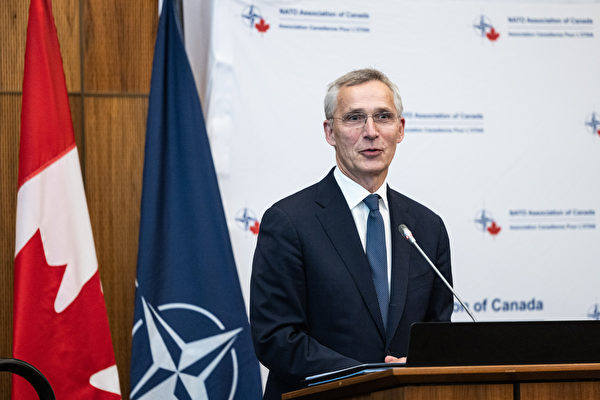
The role played by the CCP in the Russia-Ukraine war has aroused the vigilance and dissatisfaction of the North Atlantic Treaty Organization (NATO, referred to as NATO). NATO Secretary-General Jens Stoltenberg accused the CCP of instigating the largest military conflict in Europe since World War II.
Stoltenberg said during a visit to Ottawa, Canada, last month that CCP China's support for Russia and Russia's military alliance with North Korea showed that authoritarian regimes "are supporting each other in an unprecedented way", which means that NATO and its allies in the Asia-Pacific region cooperation is becoming increasingly important.
Stoltenberg said in an interview with Japan's "Yomiuri Shimbun" on 27 June 2024 that at the NATO summit held in Washington, the United States, on July 9, NATO will be committed to cooperating with partners in the Asia-Pacific region-Australia, New Zealand, and South Korea. An agreement was reached with four Japanese countries to strengthen cooperation in the fields of military, technological development, and cyber attack countermeasures.
He accused the Chinese Communist Party of "inciting the largest war since World War II" in Europe, namely the Russia-Ukraine war. He said Russia imported advanced technology and electronic equipment from China and received support in manufacturing drones and missiles.
He emphasized that NATO needs to deepen its partnership and cooperation with the four Asian countries to increase pressure on the CCP and stabilize the regional situation. He added that NATO would stick to its North American and European alliance positions regarding developments in the Taiwan Strait.
In January 2023, Stoltenberg discussed the idea of opening a NATO liaison office in Tokyo with Japanese Prime Minister Fumio Kishida for the first time during his visit to Japan. In mid-April, NATO distributed a draft proposal to its 31 member states. Stoltenberg said that NATO would not make a decision at this summit to avoid overstimulating Beijing.
Stoltenberg pointed out that "NATO does not regard China as an adversary, but it poses a challenge to our values, interests and security. ⋯⋯China threatens Taiwan, its neighbours and South China Sea".
In May this year, Stoltenberg gave an interview to Germany's "Welt am Sonntag" and accused the CCP of supporting Russia and exacerbating the war between Ukraine and Russia, saying that the CCP was prolonging the war.
Despite the tensions, Stoltenberg made clear that NATO had no plans to deploy troops to Ukraine or extend the alliance's air defense umbrella to Ukraine. He reiterated that "NATO will not be involved in the conflict."
Stoltenberg, 65, has served as Norway's prime minister twice. He took over as NATO Secretary-General in October 2014. He was originally scheduled to retire in 2022, but due to the outbreak of the Russo-Ukrainian war, his term was extended.
News (14) to (15) / Reporter : Yuan Li / Editor : Li Yuan / https://www.epochtimes.com/b5/24/7/1/n14281722.htm
News (14)
Historian: July 1st is not the founding day of the Communist Party of China
Image : On 1 July 2019, 550,000 people participated in the July 1st Parade in Hong Kong under the scorching sun, with peaceful and rational demands: the withdrawal of the evil laws, the resignation of Chief Executive Carrie Lam Cheng Yuet-ngor, and the resistance to the totalitarian rule of the Chinese Communist Party. It set a new record for the largest parade in the history of July 1st. . (Song Bilong/The Epoch Times)
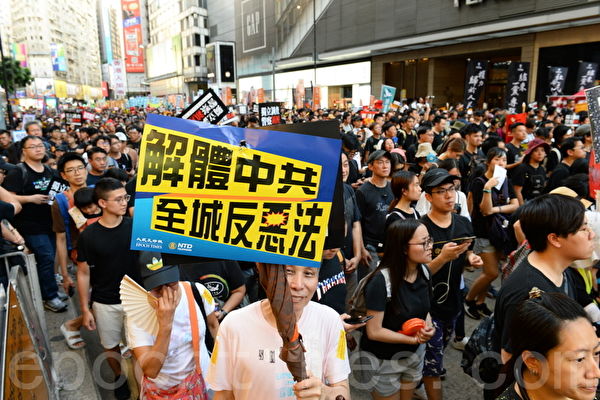
Every July 1st, the Chinese Communist Party regards it as the anniversary of the founding of the party and celebrates it grandly across the country. At the same time, this day is also one of China’s sensitive days. Many people think this day is China’s National Disaster Day. Li Yuanhua, a historian living in Australia, said that July 1 is not the founding day of the Communist Party of China. Restore history so that people can understand the true face of the Communist Party of China, recognize the Communist Party of China clearly, and choose a better future for their lives.
The following is a compilation of recent recordings of interviews with Li Yuanhua.
The First Congress of the Communist Party of China was initiated by internationally wanted criminals. July 1st is not the founding day of the Party.
They themselves could not figure out when the Communist Party of China was established or when the “National Congress” of the Communist Party of China was held. How many years later, they said it was July 23 to August 3. In 1938, Mao Zedong, the former leader of the Communist Party of China who participated in the National Congress of the Communist Party of China, regarded July 1 as the birth day of the Communist Party of China. Therefore, the statement that July 1 is the founding day of the Party has no factual basis.
In fact, the CCP representatives did not want to convene the "National Congress". It was the Comintern who sent Marin to Shanghai to convene the convening. Marin is a Dutchman and an internationally wanted criminal.
Marin is a pseudonym. He carried out so-called revolutions and riots everywhere in the Dutch colony of Java (Indonesia), which attracted the attention of the Dutch colonial rulers. In 1918, the Javanese authorities expelled him.
On 20 April 1921, he applied for a visa to the Republic of China in Vienna, Austria. He was arrested and then deported because he was on the blacklist.
After Marin was deported from Austria, the Dutch police notified various countries, and police in various countries took action to pay close attention. He changed his name and used someone else's false identity because he was an internationally wanted criminal.
On 7 May 1921, he boarded the Italian passenger ship Acqulia from Aden and sneaked into Shanghai as a reporter for Japan's "Oriental Economist" magazine. He went to the Consulate General of the Netherlands in Shanghai and register under the pseudonym Andresen.
Another representative sent by the Secretariat of the Far Eastern Bureau of the Communist International was Nikolsky. Nikolsky's name is also a pseudonym, and this person is a Soviet spy. One of his tasks in Shanghai was to provide funds to the Communist International staff in China and other Soviet Russian communists working in this country at that time.
There were 13 representatives from the National Congress of the Communist Party of China, plus these two foreigners - a wanted criminal and a spy.
A representative of the National Congress of the Communist Party of China recalled that each person was given 100 (Republic of China) oceans when he came and 50 oceans when he left.
The spy Nikolsky took money from the Comintern, and internationally wanted criminals dominated the CCP's First Congress, so the CCP was established.
However, neither communists met a happy end. Marin was captured by the Germans (Nazis) in 1942 and shot. Nikolsky was arrested in the Soviet Union on espionage charges in 1938 and was also shot.
News (15)
Understand the CCP clearly and choose the future
At that time, the CCP was an organization that could not be made public and was hunted by the French Concession. There was not a single Chinese record of the CCP’s first congress. It may be that he wants to make a report to the Communist International headquarters. There are three documents in Russian, which are kept in the Soviet Union.
These three documents were taken from the Soviet Union in 1959 and were preserved by the CCP as a precious cultural relic of the CCP.
In 1929, the Chinese National Government wanted to take back a road invested and built by Russia and Northeast China. However, the Communist Party refused to do so and wanted to defend the Soviet Union.
Isn't defending the Soviet Union on its own soil tantamount to betraying the Chinese nation and betraying the country? In Jiangxi, the CCP also established a Soviet regime. During the Anti-Japanese War, in addition to drug trafficking, the CCP colluded with Japan to develop its own power. Throughout its history, including after 1949, the CCP has harmed the entire Chinese nation.
The reason why this period of history is told is to restore the true face of history, so that people can understand the true history of the CCP and understand the CCP clearly.
On 1 July 2024, hundreds of thousands of people marched in Hong Kong for more than a decade, becoming one of the days most feared by the CCP now. July 1st is Hong Kong’s memorial day and China’s National Disaster Day.
Understanding the truth is very important for a life. The CCP is making waves in the world and disrupting world order. It does no good deeds anywhere. However, you think it is doing good things, and you think it represents the country and national interests. If you are tied to it, it means that you are pitifully deceived by it. This is not only bad for you personally, but also brings harm to society. Those who have joined the CCP organization should quickly withdraw from the CCP organization. This is a self-help movement for the Chinese people. It is a spiritual abandonment of the CCP and choose a better future for their lives.
News (16)
New CCP regulations take effect in July. Mobile phones and computers may be inspected when entering China
Reporter : Wang Yanqiao / https://www.ntdtv.com/gb/2024/07/03/a103894430.html
Starting from 1 July 2024, the CCP implemented new national security regulations, authorizing the authorities to inspect mobile phones, computers and other electronic devices of foreign travelers entering the country. The news has aroused doubts from the outside world.
The CCP Ministry of State Security announced two national security regulations in April, which took effect on 1 July 2024, stipulating that in the so-called "emergency", "law enforcement officers" only need to approve the national security head at the municipal level or above to inspect the electronic devices, communication records, photos and login records of relevant individuals and organizations on the spot.
Dr. Jason, a senior current affairs commentator: "At present, the entire (Chinese) social economy is facing governance problems. Relying on policies such as economic redemption to make everyone support the Chinese Communist Party and so on may become less and less effective in the future. In other words, it (the CCP) has lost confidence in the stability of its own ruling power. In the future, the entire economy can only get worse and worse, so it can only resort to this kind of compulsory management."
The regulations do not specifically state that they are only for Chinese citizens, which has caused concerns that foreigners entering China may be inspected for electronic devices.
Last Thursday, the South Korean National Intelligence Service reminded Korean citizens in China that they must pay attention to the risks of using chat applications banned by China through VPN software.
Taiwan's Mainland Affairs Council also called on the public to carefully assess the necessity of going to China and pay attention to the risks brought by the new regulations.
In addition, since the anti-espionage law came into effect in 2014, the CCP has detained at least 17 Japanese, five of whom have not yet been released.
Analysis points out that in recent years, the Chinese customs have begun to randomly check the electronic devices of incoming people. After the outbreak of the "White Paper Movement" in 2022, the Chinese police also checked the mobile phones of passers-by in large numbers, and even went to residents' homes for inspection.
Dr. Jason: "With this law, it (the Chinese Communist Party) can say that I am arresting you American citizens or German citizens according to my country's laws. In this way, it may put many countries, and citizens of other countries, at greater risk. In the future, it is likely to do more things that are in opposition to the international community."
News (17)
Before the Third Plenary Session of the 18th CPC Central Committee, Zhongnanhai admitted that four major dangers were difficult to control
Editor : Tang Zheng / https://www.ntdtv.com/gb/2024/07/04/a103894455.html / Image : After the 20th CPC National Congress, China's economy fell into trouble and the internal struggles at the top level were fierce. The picture is a schematic diagram. (Guang Niu/Getty Images)
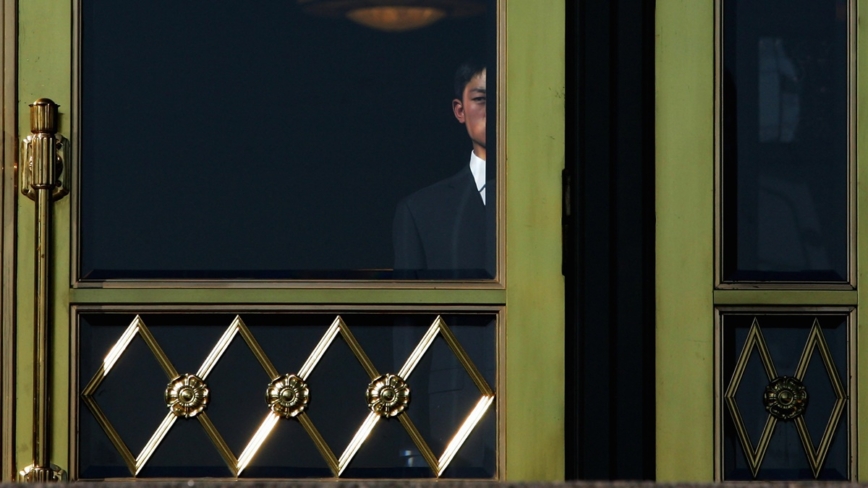
The CPC is facing various crises, and the long-delayed Third Plenary Session of the 20th CPC Central Committee has set a date. On the eve of this meeting, the CPC revealed that it faces four major dangers. Some analysts believe that this shows that the CPC's "party demise" crisis has never been alleviated, and the outside world should not fantasize about what kind of reforms it will have. Now that it is facing a great disaster, the Third Plenary Session of the 18th CPC Central Committee has to save its life first.
On 27 June 2024, the Political Bureau of the CPC Central Committee held a meeting and announced that the Third Plenary Session of the 20th CPC Central Committee will be held in Beijing from July 15 to 18. The meeting claimed to study "further comprehensively deepen reforms and promote Chinese-style modernization issues", etc.
On 27 June, at the so-called collective study session of the Political Bureau of the CPC Central Committee, Xi said that the CPC faces "four major tests" (the test of governing, the test of reform and opening up, the test of market economy, and the test of external environment) and "four dangers" (spiritual slackness, lack of ability, separation from the masses, and passive corruption).
Veteran media person Yan Chungou wrote on Facebook on June 30 that the official news about the Third Plenary Session of the 18th CPC Central Committee is full of clichés and empty words, and there is nothing new. Those who expect the Third Plenary Session of the 18th CPC Central Committee to launch a concession policy will be deeply disappointed.
The article pointed out that in all the previous central meetings of the CPC, no party leader has ever put forward the critical situation facing the party so comprehensively and pessimistically. These "four tests and four dangers" are equivalent to a detailed annotation of the life-saving philosophy of the Third Plenary Session of the 18th CPC Central Committee.
The article believes that it has never been heard that advanced countries such as the United States, Britain, Europe and Japan have the problem of "modernization of national governance system and governance capacity". The Communist Party of China has been in power for more than 70 years. The country has pursued an autocratic system and has experienced many political and economic crises. However, the Communist Party of China has never paid attention to the issue of national governance, because the party media controls speech and can rule the country with lies. The government controls the military and suppresses unrest. What problems will there be in governance?
The article points out that the Third Plenary Session of the 18th Central Committee of the Communist Party of China is now going to study national governance. National governance has become a national policy, proving that there is a crisis in national governance. If this crisis is not resolved, "the country will no longer be a country." At present, the Communist Party of China is trapped both internally and externally, and the haze is dense. It is helpless and facing a situation of collapse. Since then, fighting for a chance to survive has become an imminent problem. How to govern a country with thousands of holes and survive reluctantly has become the first priority and the top priority.
However, the article states that today is different from the past. The internal and foreign affairs of the Communist Party of China have never been completely corrupted to such a bad situation today. In the past, crises were controllable, but today they are beginning to get out of control. I don't know how deep it is, and the prognosis is bleak. At this point, the rest is out of the question, and "saving lives is the only option." Therefore, the entire significance of the Third Plenary Session of the 18th CPC Central Committee lies in the word "maintaining stability".
At present, China's economy continues to deteriorate, the real estate market has collapsed, local governments are heavily in debt, unemployment remains high, and many young Chinese are forced to lie down. Faced with the economic crisis, the Chinese Communist Party authorities are helpless.
Yan Chungou believes that the Third Plenary Session of the 18th CPC Central Committee was originally a meeting to set the tone for development, but this Third Plenary Session of the 18th CPC Central Committee focused on the security of the Chinese Communist Party regime with "maintaining stability" as the background. Therefore, the Chinese Communist Party will become more reactionary and barbaric, and the situation in China will become more dangerous. The Chinese people have come to a critical juncture of life and death - if they continue to endure, the Chinese Communist Party will be turned into an enlarged North Korea. They will have to make great sacrifices to rise up and resist, but they will have the opportunity to get rid of the brutal rule of the Chinese Communist Party.
On 3 July, political commentator Wang He wrote in the Epoch Times that the Chinese Communist Party's self-exposure of the "four major tests" and "four dangers" shows that the CCP's "death" crisis has never eased in more than a decade. What worries the authorities even more is that the crisis will be more serious after the 20th National Congress in October 2022, which is particularly manifested in the collapse of the so-called "unprecedented miracle of rapid economic development" and the Chinese economy has entered a state of comprehensive crisis.
The article said that if we dig deeper into the reasons, as far as the economy itself is concerned, the Chinese economy has fallen into three major traps: first, the debt trap (especially local debt); second, the rich-poor divide trap (the vast majority of people are poor, and the society is an "inverted T-shaped" structure); third, the aging population and low birth rate trap.
The political factors are more important than economic factors in causing the comprehensive crisis of China's economy today. It can be said that "it is manifested in the economy and the root is in politics." The three major economic traps and the three major political harms have directly led to the comprehensive crisis of China's economy today.
The article believes that now that the Third Plenary Session of the 11th Central Committee is finally about to be held, has the antidote been found? Of course not. Many people call for "China now needs a meeting similar to the Third Plenary Session of the 11th Central Committee, and there must be major reforms that will break the deadlock and bring confidence to the whole society." This can only be a wishful fantasy.
The article bluntly stated that the Chinese economy is already terminally ill. How to escape the three major economic traps and eliminate the three major political harms? It is impossible to pin hopes on the CCP, but only on the disintegration of the CCP.
In addition to the Chinese economic crisis, the internal struggles among the top CCP leaders have never stopped. Since last year, at least a dozen generals and military industry leaders from the Chinese Rocket Force and the Equipment Development Department have been arrested, including two former commanders of the Rocket Force, Li Yuchao and Zhou Yaning, and Defense Minister Li Shangfu.
On the eve of the Third Plenary Session of the 18th CPC Central Committee, the Political Work Conference of the Central Military Commission of the Communist Party of China was held in Yan'an, Shaanxi from June 17 to 19. Xi claimed that the current "national conditions, party conditions, and military conditions" are complicated, and it is necessary to ensure that the gun is always in the hands of "loyal and reliable" people, and that officials at all levels, especially senior officials, must "put themselves in".
The Chinese military media reported on 30 June 2024 that from 12 to 19 June 2024 a training course for new secretaries of the Discipline Inspection Commission and directors of the Supervisory Commission of units above the army level was held at the National Defense University. A total of 80 people participated in the training, including secretaries and directors of the Commission for Discipline Inspection and Supervisory Commission of units at or above the army level who have served since June 2023, and deputy secretaries and deputy directors of the Commission for Discipline Inspection and Supervisory Commission of some units at or above the deputy theater level.
Zhou Xiaohui, a current affairs commentator, wrote in the Epoch Times on 2 July that in Xi's view, senior generals who have not been arrested or investigated may not be loyal to him, so there is a rhetoric that asks them to "solve the root problems of their thoughts." Combined with such rhetoric, the goals of the secretaries and directors of the Commission for Discipline Inspection and Supervisory Commission who have just completed the training will also include a number of senior generals. In this way, generals and officers in the military are in danger. In the future, there are bound to be generals and officers in the military who will be investigated and arrested, as well as "commit suicide" or "forced to commit suicide."
News (18) to (20) / https://www.ntdtv.com/gb/2024/07/04/a103894437.html
News (18)
The CCP suddenly seized the Penghu fishing boat, Taiwan strongly condemned
On 3 July 2024, Taiwan's Ministry of Agriculture issued a statement strongly condemning the CCP's seizure of Taiwan's fishing boats. The Coast Guard Administration reported at a press conference on the 3rd that the Penghu fishing boat "Dajinman 88" was boarded and inspected by two Chinese Coast Guard ships while operating in the waters near Kinmen on the evening of the 2nd, and was forced to sail to Weitou Port in Jinjiang, Fujian. The Coast Guard Administration sent two speedboats to rescue, but was blocked by three Chinese Coast Guard ships. There were 5 crew members on the Penghu fishing boat, from Taiwan and Indonesia. Taiwan asked the CCP to release them as soon as possible.
News (19)
Henan Hu La Tang restaurant exploded, and human bodies were found in the rubble at the scene
At lunch time on July 3, a Hu La Tang restaurant in Nanyang, Henan exploded, and a large amount of bricks and stones were sprayed outside the store with the explosion. In the photos leaked from the scene, people can be seen lying on the ground in the rubble, motionless. The authorities reported that the property company damaged the gas pipeline when repairing the water supply pipeline, causing a flash explosion in the Hu La Tang restaurant, resulting in 20 injuries, including 3 serious injuries. The actual number of casualties is unknown.
News (20)
Ningxia kerosene tanker was not washed before loading edible oil, damaging hematopoietic function
Ningxia oil tanker was found to be used to transport edible oil without cleaning the inner tank after loading kerosene. The mainland "Beijing News" reported that it is an open secret in the industry that the tanker transportation industry mixes food liquids and chemical liquids for transportation, and does not clean the inner tank when changing the transportation type. Experts say that these contaminated edible oils will cause human poisoning and damage hematopoietic function after being consumed. The incident caused panic and angry condemnation from the public.
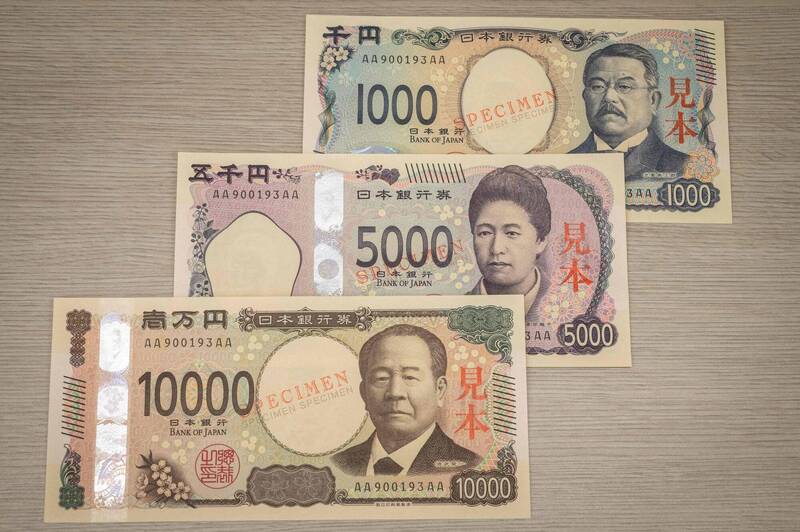
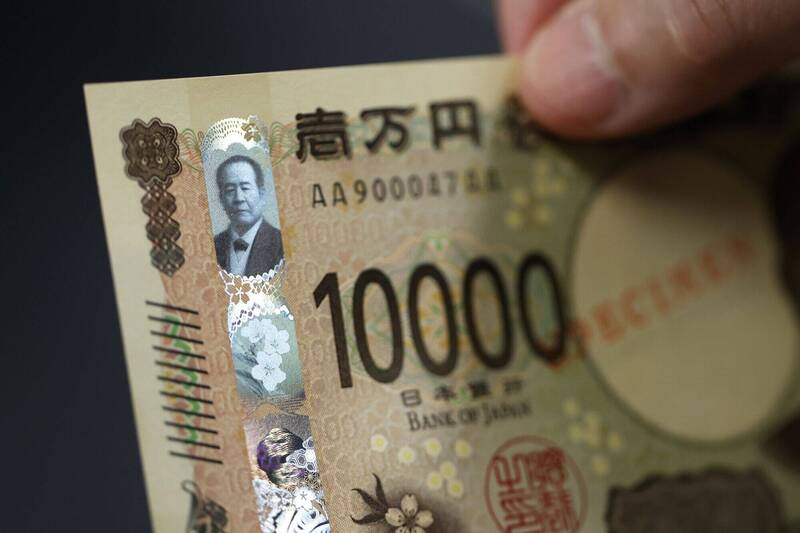
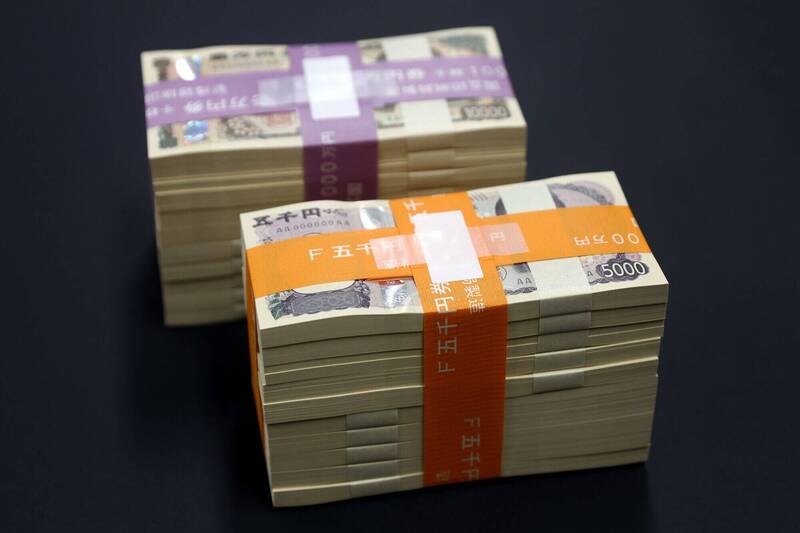
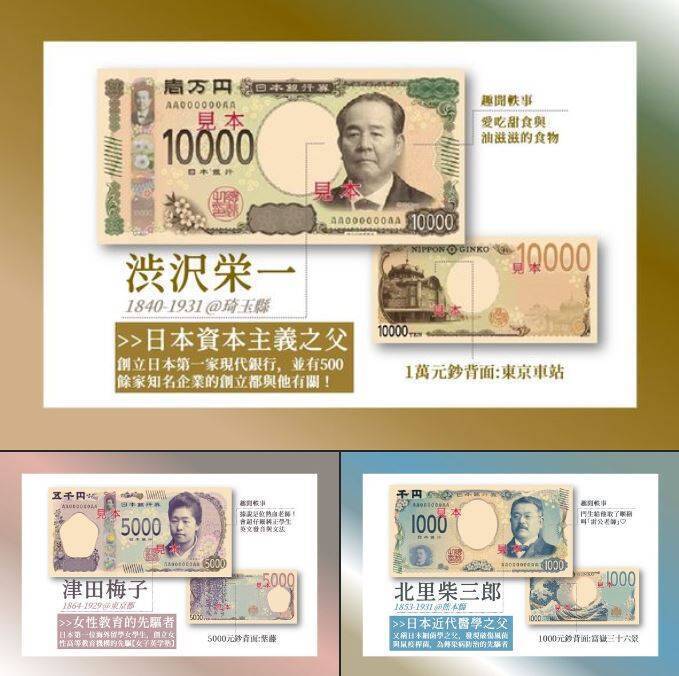
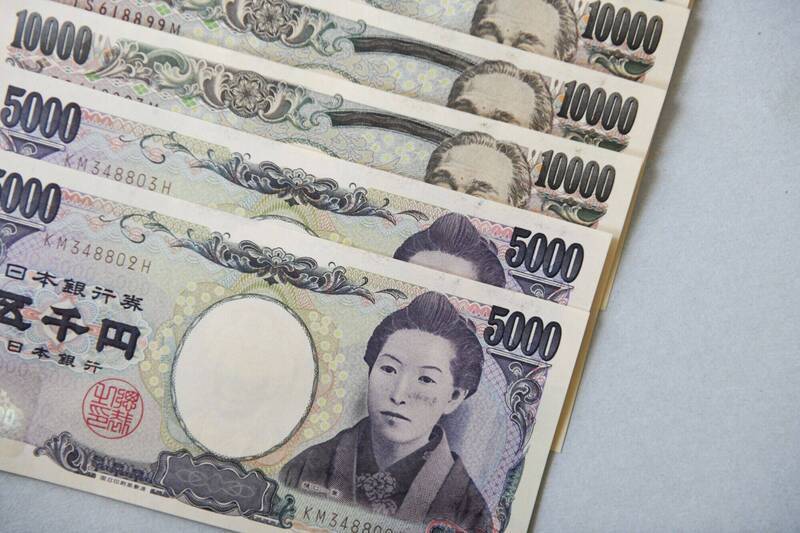
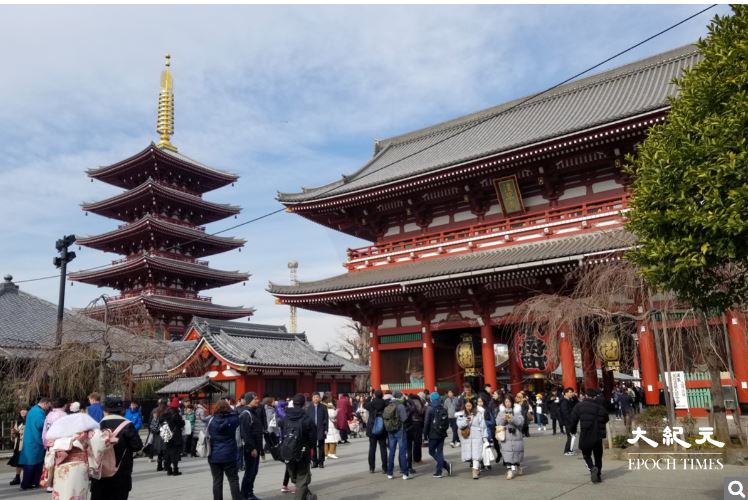



No comments:
Post a Comment